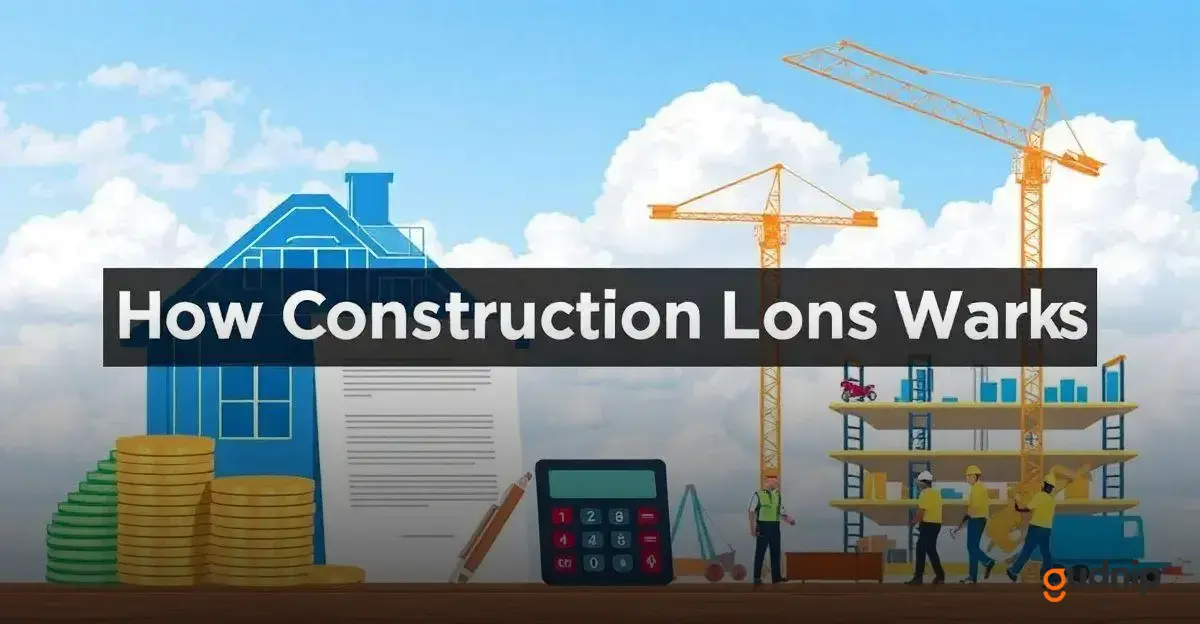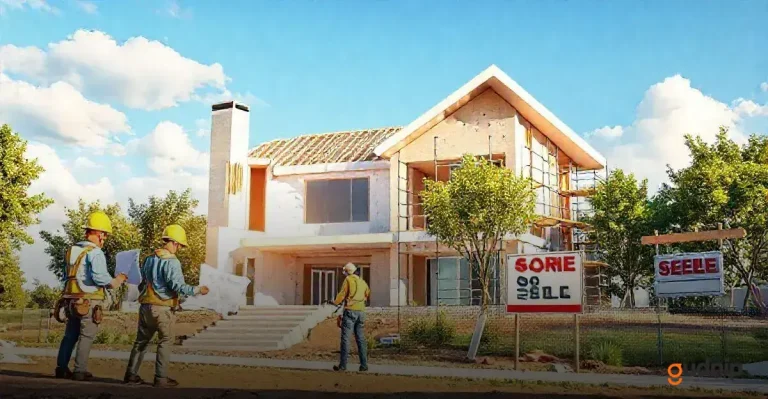Construction loan is essential for anyone looking to build their dream home or make significant renovations. These specialized loans provide the financial backing to cover costs like land purchases and construction expenses. Understanding how they work is crucial for making informed decisions that align with your vision.
While navigating construction financing can be overwhelming, knowing the unique advantages can simplify the process. With construction loan, you can draw funds as needed, allowing for effective cash flow management. This flexibility helps you focus on creating the home you’ve always wanted.
If you’re interested in learning how to secure the best rates and maximize your construction loan, keep reading. You’ll find valuable tips and insights to confidently embark on your building journey!
What is a Construction Loan?
A construction loan is a short-term loan specifically meant for financing the building of a new home. These loans typically cover the cost of land and construction expenses, and they are released in stages as the construction progresses.
This is crucial for both the lender and the borrower, as it allows close monitoring of how funds are being used and ensures that the construction project stays on budget.
Unlike traditional mortgages, a construction loan is usually interest-only during the construction period, which can last up to one year. Once the home is completed, the borrower often has the option to convert it into a permanent mortgage. This flexibility can be advantageous for many homeowners looking to manage their finances efficiently.
In essence, obtaining a construction loan involves a thorough application process that includes a detailed project plan and a budget. Lenders will want to see a good credit score, income verification, and a list of qualified contractors to ensure that the project will be completed successfully.
How Construction Loans Work

Understanding how construction loans work is crucial for anyone considering building a home. These loans are designed to provide the necessary funds to cover construction expenses, and they operate a bit differently compared to traditional mortgage loans.
The process typically begins with applying for a loan with a lender who specializes in construction financing. The borrower must provide a detailed construction plan, a budget, and a reputable contractor’s information. This allows the lender to evaluate the project’s feasibility and the borrower’s ability to repay the loan.
During the construction phase, funds are disbursed in draws or stages. This means that the lender releases money at specific milestones throughout the construction process, ensuring the project stays on track. Borrowers usually pay interest only on the amount disbursed until the project is completed.
Once construction is finished, borrowers can convert the construction loan into a permanent mortgage. This step is vital as it allows the homeowner to have a long-term loan at typically lower interest rates. Overall, understanding these mechanisms can help prospective homeowners navigate the construction loan process successfully.
Advantages of a Construction Loan
There are several advantages of a construction loan that make them an appealing option for anyone looking to build their dream home. First and foremost, these loans provide the necessary funds to cover not just the construction costs, but also the purchase of land if required.
Unlike traditional mortgages, construction loans typically offer flexible terms. This means that you can draw funds as needed throughout the construction process rather than receiving a lump sum at the beginning. This helps in managing the project’s cash flow effectively.
Another important advantage is the potential for interest savings. During the construction phase, borrowers usually pay only interest on the drawn amounts, which can lead to lower initial payments compared to conventional loans.
Furthermore, construction loans can also help build equity in the home from the start. As you progress with your construction project, your equity increases, which can be beneficial should you decide to sell or refinance in the future.
Key Considerations Before Applying

Before applying for a construction loan, there are several key considerations to keep in mind. First, it’s essential to have a detailed and realistic budget that outlines all expected costs, including permits, materials, labor, and unexpected expenses. This helps ensure that you request the correct loan amount.
Your credit score plays a crucial role in securing favorable loan terms. Most lenders prefer a credit score of at least 680 to provide better rates. Therefore, checking your credit report and addressing any issues ahead of time can improve your chances.
Additionally, selecting a qualified contractor is vital. Lenders often require details about the contractor, along with their credentials and track record. This ensures that the person you hire can complete the project on time and within budget.
Another consideration is understanding the loan structure. Some construction loans may convert to a permanent mortgage after construction, while others require a separate closing process. Make sure to clarify how your specific loan operates.
Finally, be prepared for the application process to be thorough and potentially lengthy. Lenders will require documentation like income verification, asset details, and project plans, so having these ready can speed up the process.
Tips for Securing the Best Rates
When seeking to secure the best rates on a construction loan, there are several effective tips you can follow. First, it’s important to maintain a good credit score. Lenders typically offer better rates to borrowers with scores above 700. To improve your score, pay off debts and avoid opening new credit lines right before applying.
Next, shop around with different lenders. Each lender may offer varying rates and terms, so comparing at least three different options can help secure the best deal. Consider not only the interest rates but also any fees associated with the loan.
Additionally, having a larger down payment can positively influence your interest rate. A down payment of at least 20% can demonstrate to lenders that you are financially stable, which can result in better loan conditions.
It’s also wise to get pre-approved for a loan before you start building. Pre-approval provides you with a clear understanding of how much you can borrow, showing lenders that you’re serious and financially capable.
Finally, consider the timing of your application. Interest rates can fluctuate based on market conditions, so applying during a period of lower rates can mean significant savings over the life of the loan.
Conclusion
In summary, securing a construction loan requires careful planning and consideration of various factors. By understanding how these loans work and preparing your finances appropriately, you can position yourself to take advantage of this unique opportunity to build your dream home.
Remember to maintain a good credit score, compare lenders for the best rates, and have a solid plan in place for your construction project. With the right approach, you can navigate the complexities of construction loans successfully and ultimately create a space that meets your needs.





